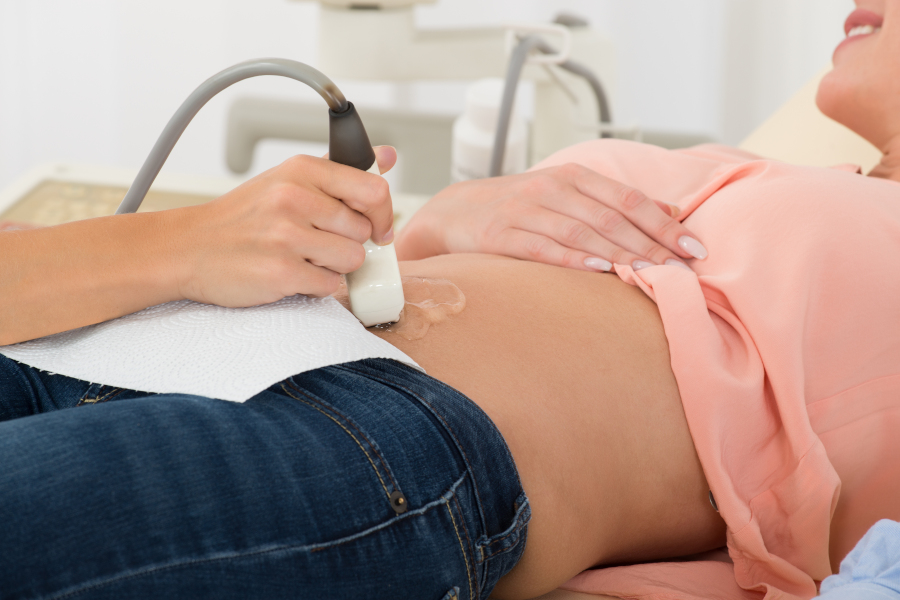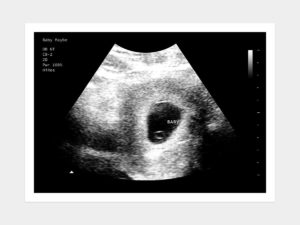
Ultrasounds have been a routine part of prenatal care for decades, providing critical insights into the health of both mother and fetus throughout pregnancy. Despite their widespread use, misconceptions and myths about the safety of ultrasounds persist. This article aims to clarify these misunderstandings by analyzing scientific data and addressing common concerns about the safety of prenatal ultrasounds.
Ultrasound imaging, or sonography, uses high-frequency sound waves to create images of the inside of the body. During pregnancy, it helps monitor fetal development, diagnose potential issues, and manage the pregnancy's progress. Unlike X-rays, ultrasounds do not use ionizing radiation, which is one of the reasons why they are preferred for prenatal care.

Myth 1: Ultrasounds Can Harm the Fetus
Reality: There is no scientific evidence to support the claim that routine ultrasounds at levels used in prenatal care can harm the fetus. Ultrasounds have been used in obstetrics for over 50 years and extensive research has not found any direct links to fetal harm when used appropriately by trained professionals.
Myth 2: Ultrasounds Cause Hearing Loss in Babies
Reality: Concerns that ultrasound exposure could affect hearing stem from studies in animals, but these effects have not been replicated in humans. The intensity and frequency of sound waves used in medical ultrasounds are regulated and are under safe limits established by regulatory bodies. Research has shown no statistically significant association between ultrasound exposure and hearing loss in newborns.
Myth 3: Frequent Ultrasounds Lead to Developmental Issues
Reality: While it is essential to use all medical interventions judiciously, there is no evidence to suggest that multiple ultrasound scans cause developmental abnormalities in fetuses. Medical guidelines recommend that ultrasounds should only be performed when there is a clear medical benefit.
While ultrasounds are considered safe, it is vital to address the primary safety concerns:

To ensure the safety and effectiveness of ultrasounds, consider the following recommendations:
Ultrasounds are a safe, non-invasive, and valuable tool in prenatal care. Scientific evidence strongly supports their safety when used appropriately under professional guidelines. By debunking common myths and understanding the facts about ultrasounds, expectant parents can feel more comfortable and reassured about the use of this technology. Remember, the primary goal of any prenatal test, including ultrasounds, is to contribute to the health and well-being of both mother and baby.
This information is presented as a general guide to the safety of ultrasounds: debunking myths. It is for informational purposes only. The information provided is not intended to be the only information available about the safety of ultrasounds: debunking myths. The material provided is not expected to be a substitute for advice or information from your physician or health care provider.
If you have any questions, concerns, fears, apprehensions, unease, or worry about the safety of ultrasounds: debunking myths basics contact your health care provider immediately.








ALL WARRANTIES OF ANY KIND WHATSOEVER EXPRESS, IMPLIED, AND STATUTORY, ARE HEREBY DISCLAIMED. ALL IMPLIED WARRANTIES OF MERCHANTABILITY AND FITNESS FOR A PARTICULAR PURPOSE ARE HEREBY DISCLAIMED. THE PRODUCTS SOLD, INCLUDING SONOGRAMS, ULTRASOUNDS, FAKE PREGNANCY DOCUMENTS, AND FAKE PREGNANCY TESTS ARE SOLD ‘AS IS’ BASIS.
THE SITE CANNOT AND DOES NOT CONTAIN [MEDICAL/ LEGAL/ FITNESS/ HEALTH/ OTHER] ADVICE. THE INFORMATION IS PROVIDED FOR PRANKS PURPOSES ONLY AND IS NOT A SUBSTITUTE FOR PROFESSIONAL ADVICE.
ACCORDINGLY, BEFORE TAKING ANY ACTIONS BASED UPON SUCH INFORMATION, WE ENCOURAGE YOU TO CONSULT WITH THE APPROPRIATE PROFESSIONALS. WE DO NOT PROVIDE ANY KIND OF MEDICAL/ LEGAL/ FITNESS/ HEALTH ADVICE. THE USE OR RELIANCE OF ANY INFORMATION CONTAINED ON THIS SITE, OR OUR MOBILE APPLICATION, IS SOLELY AT YOUR OWN RISK.
THIS WEBSITE DOES NOT PROVIDE MEDICAL ADVICE. THE INFORMATION, INCLUDING BUT NOT LIMITED TO, TEXT, GRAPHICS, IMAGES AND OTHER MATERIAL CONTAINED ON THIS WEBSITE ARE FOR PRANK PURPOSES ONLY. NO MATERIAL ON THIS SITE IS INTENDED TO BE A SUBSTITUTE FOR PROFESSIONAL MEDICAL ADVICE, DIAGNOSIS OR TREATMENT. ALWAYS SEEK THE ADVICE OF YOUR PHYSICIAN OR OTHER QUALIFIED HEALTH CARE PROVIDER WITH ANY QUESTIONS YOU MAY HAVE REGARDING A MEDICAL CONDITION OR TREATMENT AND BEFORE UNDERTAKING NEW HEALTH CARE REGIMEN, AND NEVER DISREGARD PROFESSIONAL MEDICAL ADVICE OR DELAY IN SEEKING IT BECAUSE OF SOMETHING YOU HAVE READ ON THIS WEBSITE.
THE PARTIES AGREE THAT ANY PRODUCT PURCHASED ON THE BABY MAYBE WEBSITE SHALL NOT BE USED FOR ANY PROPOSE OTHER THAN AS A PRANK. WITHOUT EXCEPTION NO BABY MAYBE PRODUCT SHALL BE PROVIDED/SUBMITTED TO ANY GOVERNMENTAL OR OTHER AGENCY, MEDICAL DOCTOR, ARBITER OF A DISPUTE, AS PROOF OF PREGNANCY, PAST OR CURRENT, OR TO CLAIM ANY BENEFIT FOR WHICH A PREGNANT WOMAN MAY BE ELIGIBLE, OR ENTITLED TO RECEIVE, BASED ON HER BEING PREGNANT. NO HIPAA PROTECTED PATIENT HEALTH INFORMATION CONNECTED TO ANY BABY MAYBE PRODUCT, IS INTENDED, OR CONVEYED, WITH RESPECT TO THIS SALE.
THE PARTIES AGREE THAT BABYMAYBE IS NOT RESPONSIBLE FOR ANY LIABILITY WHATSOEVER FOR DELAYS IN SHIPPING THE PRODUCT. THE PARTIES FURTHER AGREE THAT THE SOLE REMEDY FOR ANY SHIPPING DELAYS IS THE REFUND OF THE PURCHASER’S PAYMENT FOR THE PRODUCT.
THE PARTIES AGREE THAT THE FORUM FOR ANY LEGAL ACTION ASSOCIATED WITH THE SALE AND PURCHASE OF THE PRODUCT IS THE STATE OF ILLINOIS.